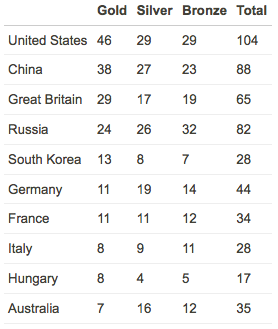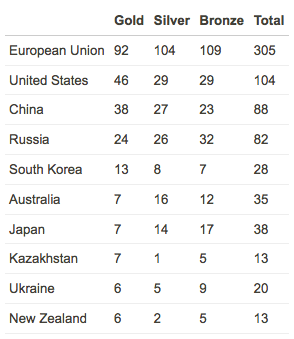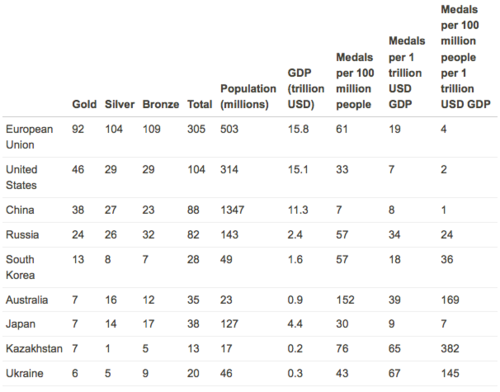Welcome to USA 2.0
On the one hand:
- We now have secret laws, with secret interpretations, by secret courts.
- There is massive surveillance of everyday activities of all US citizens.
- All Internet activity and phone conversations are monitored.
- Some recent revelations approach the farcical: “Who Are We at War With? That’s Classified”.
Taken at face value, the above facts could make one think we are living in a police/totalitarian state.
On the other hand:
- You go outside, and everyone is going about their daily lives; no one is cowering at the sight of police and no one is living perpetually in fear of their neighbors ratting on them.
- People criticize the government daily, in the media and among friends, and face no repercussions from the state.
- The majority of people seem to be mostly OK with the government surveillance detailed in the latest revelations.
So, based on the daily experience of the majority of the population, we are not living in a police state. People who have lived in one know the experience and can attest that this isn’t it.
Nevertheless, it is troubling to have the government (or any entity) monitoring everything we do, day in and day out. Even if I’m not doing anything illegal or immoral, I don’t want someone knowing my every action and communication. I’m in good company in feeling this way: with the Fourth Amendment to the United States Constitution, the founders also expressed an aversion to unchecked surveillance by the government.
Yes, technically, whatever the NSA and the various secret government agencies are doing is “legal” and “constitutional”, but that is only true if you are willing to perform complex mental and legal gymnastics. For example, in my opinion, a secret court that has secret interpretations of secret laws is not a democratic court by any non-laughable definition of the word. At its core, the surveillance exposed by the latest revelations is at odds with the Fourth Amendment and the constitution.
The proponents of all this surveillance argue that we are at war with terrorists, and we must continue with the collection of all this data in order to defend ourselves from any potential attack. That is, we are not living in a peaceful era, we are at war, and so we must make special allowances with respect to civil liberties to protect ourselves.
This is a good argument and hard to argue against. When at war, some of the luxuries or liberties we enjoy during peacetime must be put on hold for the greater good and preservation of society. If we are to choose between the “luxury” of a life free from constant government surveillance and a life free from devastating terrorist attacks with mass casualties, most people would choose the latter.
However, the problem with the above is: if this is a war, when will it end? The First World War lasted about four years, and the Second World War lasted about six years. This war started, at least in its current incarnation, in 2001 and is still going strong, twelve years later. There is no realistic end in sight. The war on terrorism is likely to last several decades, if not longer.
Therefore, whatever constitutional allowances we are making in the name of fighting terrorism will be around for so long that, as far as most of us are concerned, are essentially permanent.
Maybe this is all necessary for the safety of the populace, but this is not the country the founders had in mind, and this is certainly not the country people thought they were living in, at least until a few years ago.
Without consulting the citizens of the country, people in power one-sidedly decided that this change to some of the fundamental founding principles of the country was necessary. If the recent surveillance revelations hadn’t happened, most of us wouldn’t even know that those in power made this decision in our name.
To paraphrase a well-known saying, it’s as if those in power decided that they had to destroy the USA (as originally conceived) in order to save it (from terrorists). The original USA, founded on, among other principles, freedom from an overbearing government, has changed. Terrorists have, to a degree, won because they have managed, through their attacks and threats of future attacks, to change some of the fundamental aspects and principles of what it meant pre-2001 to be living in the US and be a citizen of the US. As mentioned above, these changes are going to be in place for a very long time, if not permanently.
Welcome to USA 2.0.
P.S. 1
One of the interesting aspects of this whole story is that the NSA was so protective of the secrets Snowden revealed, because of the fear of serious repercussions if people found out about them, and yet the reaction from most people was a “meh”.
One might reason that, if the NSA did not accurately predict the repercussions of divulging this latest information to the wider population, how can we trust that they can accurately predict the repercussions of revealing all the other secret programs they want to keep concealed from us?
P.S. 2: Some select articles related to the latest surveillance revelations
- The Internet Is a Surveillance State
- “Dianne Feinstein, … said authorities needed the information in case someone becomes a terrorist in the future.”
- The laws you can’t see
- Why Privacy Matters Even if You Have ‘Nothing to Hide’
- Timeline of NSA Domestic Spying
- Guardian Editor: U.K. 'Security Experts’ Entered Offices And Destroyed Hard Drives
- Orders To Destroy Guardian Hard Drives Came Directly From PM David Cameron
- NSA revelations of privacy breaches 'the tip of the iceberg’
- Interview with Glenn Greenwald
- Lawmakers say obstacles limited oversight of NSA’s telephone surveillance program
- NSA loophole allows warrantless search for US citizens’ emails and phone calls
- DEA Mines “National Security” Data To Spy On Americans, Now Concealing Program
- Sounding the alarm: Interview with vocal NSA critic Sen. Ron Wyden
- NSA has violated privacy rules on nearly 3,000 occasions in a one-year period







